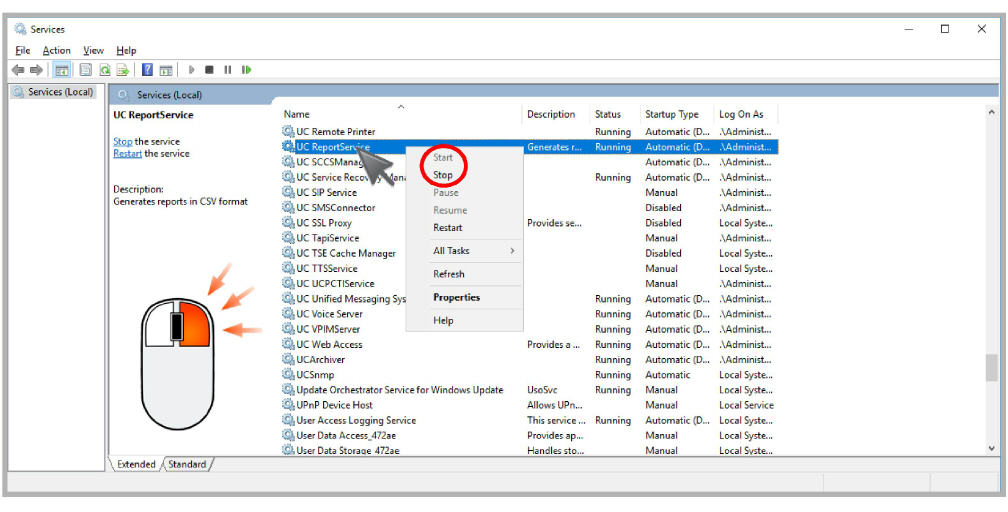
Updating the Windows Operating System
Once Avaya IX Messaging program is operational, there will be occasions when the Windows operating system on the servers must be updated. In order to safely perform the required updates, it is necessary that several services for Messaging be stopped. If Windows is updated without first stopping these services, the database may be damaged.
It is advisable to make a backup of your system, or take a snapshot of its current state, before proceeding with the update.
Stop all of the following services on each server. In an HA environment, this includes the Primary, all Secondaries, and the Consolidated servers. Any additional servers, such as Remote CSE, must also be processed this way.
|
Services to Stop |
Server Affected |
|---|---|
|
UC Service Recovery Manager |
Single Server, Consolidated 1 |
|
UC Web Access |
Single Server, Consolidated |
|
UC ReportService |
Single Server, Consolidated |
|
UC Background File Organizer |
All |
|
UC CSE PIM Synchronization Engine |
Single Server, Consolidated |
|
UC Content Synchronization Engine |
Single Server, Consolidated |
|
UC Business Layer Service |
All |
|
UC Background Task Manager |
All |
|
UC VPIMServer |
Single Server, Consolidated |
|
UC Unified Messaging System Tasks Service |
Single Server, Consolidated |
|
Mobilink Consolidated |
Consolidated |
|
DBWatcher |
All |
|
UC Voice Server |
Single Server, Primary, Secondaries |
|
UC MRCP Watcher |
Single Server, Primary, Secondaries |
|
Nuance Recognition Service |
Single Server, Primary, Secondaries |
|
SQLAnywhere Mobilink Remote |
Primary, Secondaries |
|
SQL Anywhere - USADB_UC |
All |
1 - The UC Service Recovery Manager service must be the first one stopped since its role is to restart the other services should they fail and bring the system down.
|
Note: If prompted to stop other services in addition to the ones shown, always choose YES. Some services are dependent upon others and must all be stopped together. |
In the Windows Service Manager, right-click a service, and choose Stop from the dropdown list.

When the Windows update is complete, reboot the server.
Once the server is operating, verify that all of the services are running. If any are still stopped, manually start them from the Services window.